 Your new post is loading...
 Your new post is loading...
Every business must serve a social purpose”. These are not the words of a social campaigner or a politician; they are the words of a banker, Ashok Vaswani, the CEO of Retail and Business Banking at Barclays, one of the world’s largest banks. Barclays has been involved in at least one major trading scandal and holds the dubious honour of the most fined bank in Britain. There will be some people who will treat his words with understandable cynicism but that would be to miss the point.
The point is not whether the words are sincere or not – it is that they should have been said at all. Banks are concerned with the control of money, why should they concern themselves with any purpose beyond that? The reason is that society is demanding they do. When banks first started they fulfilled a social need in the community, to enable ordinary people to fund their ambitions. Over the years banks forgot that purpose and focused most of their efforts on funding their own ambitions through obscene profits, often at the consumer’s expense. The bubble burst in spectacular fashion with the downfall of Lehman Brothers in the US and RBS in the UK.
It isn’t just the banks that have lost their way. Now it’s critical for any business to demonstrate it has a purpose before, and beyond profit; that it seeks to improve the lives of its customers as a primary goal. Failure to have such a purpose, to be clear about it and to ensure it directs everything you do, will lose customers, employees and ultimately business value....
What’s in it for them?” is, perhaps, the most important question that you can ask yourself before you enter into cause-related business (or any business, for that matter). So often, marketers know a ridiculous amount about their product, their points of differentiation, their mission or even their cause, yet when asked about their customer, they run out of things to say rather quickly.
The secret to fostering engagement with your customers lies in knowing what they are really buying from you. If you want your business to do good, it better be the kind of good that people care about. People save the cute and cuddly animals first. Baby fur seals and koalas are far easier to rescue than the blowfish. This is not to diminish the importance of any cause, but if we fail to be honest about the way that consumers buy and buy in, then we fail to understand the nature of “good” in business....
Pinpoint Market Research reports that “twenty-somethings” want something more from brands than just a product or service; they want social, political and community action. The market research company surveyed 1,650 men and women aged twenty to twenty-nine in the U.S. about social issues and brand engagement.
What They Want From Brands And The Social Issues That Matter To Them: - Seventy-nine percent choose or boycott companies based on the brand’s allegiance to social issues - Eighty-eight percent want to see brands “effecting real change” in the communit - The issues they most care about: online privacy (31%); America’s debt/deficit (22%); climate change (20%); GLBT rights (15%); net neutrality (7%); police brutality/excessive force (5%)...
Pro-social brands are the next step for companies looking to morally engage with consumers. Driven by marketers who are moving beyond claims of sustainability and into strong stands on relevant social issues, this trend picked up momentum in 2014. It will be positively explosive in 2015.
So what’s the difference between sustainable and pro-social brands?A traditional sustainable brand expects that customers will laud and applaud it for its charitable giving and its actions on key environmental issues. It’s the classic, safe, (usually) apolitical “vote with your dollars” approach: sustainable brands tell stories that cast them in the role of hero and expect audiences to simply play the role of starry-eyed hero-worshipper....
Australians are increasingly favouring ethical brands, with more than three quarters of respondents to a Havas PR study showing some conscientious consumption. In the past, almost three fifths of respondents reported failing to act conscientiously.
In a consumer-driven economy, the good a company does is increasingly becoming its defining competitive advantage. While CSR, cause marketing and sustainability might have seemed like nice-to-dos just a few years ago, articulating your brand's core values is now critical in terms of the reputational, employee productivity, and bottom line impact to your company.
As Rich Fernandez, Director of Executive Development at Google, said recently at Sustainable Brands '13, If a company's product is not improving lives, it's diminishing them." In the face of rising consumer activism, Marketing 3.0 will be won by those who become purpose-driven social brands. To do so, the CMO, CSO, CSR, and Foundation leads must align to bring a cohesive brand story to life that clearly defines the company's "social license to operate....
Three years ago, Citizen Renaissance was published as a reaction to three seismic shifts in society - the rise of digital democracy, falling global wellbeing and an imminent environmental crisis. The footballing cliché runs that teams must score when they are dominating the game. PR consultancies often manage early possession, but then struggle to find the back of the net. It happened with CSR and with social and now with content, too – a failure to convert early-mover advantage into sustained leadership. We let others steal our clothes and then bemoan their encroachment on “our” space. For a profession that prides itself on the quality of its strategic advice, it is perverse that we so consistently forget to take our own. This is partly a failure of visionary leadership; partly the lack of a rigorously defined point of view about our very purpose; but mostly a question of economics and business models. With the exception of the big, consultancy networks, PR rarely achieves scale. And, where the holding company groups do deliver scale, so some of the choicest bits are invariably siphoned off to the media houses and ad guys. Why? Because they make a better case for the economics and are able to enumerate their arguments on a factual base. This is exactly what is now happening with content and data. PR is increasingly banished to the fringes....
Working in Corporate Social Responsibility (CSR) is something I find difficult but gratifying. The field of CSR is tumultuous but, as in most fields these days, fellow CSR strategists collaborate via social media to discuss the good, the bad, and everything in between. Over the years, I’ve found some amazing companies and innovators that I have found to be great resources within CSR. (In no particular order)... [CSR and PR strategists take note - JD]
"Do you do good at work, or is doing good something you do outside your job?" That, to paraphrase, was the question that sat before some fellow marketers/corporate communicators and me at a gathering some time back. ...I was shocked to hear a good number of people in the room express the opinion that the field of marketing was not about doing good nor bad; instead, it was about having a skill (effective communications and persuasion) that could be employed for any cause indiscriminately....
...Mashable, an online news source on web culture, social media and technology, recently posted an article about a personal version of CSR. In the article, they discuss “PSR” and argue that commitments to sustainability are not just for brands anymore. The author poses an intriguing question about whether the same sustainability lens that’s been held to companies will soon be held up to the individual … and if it should be. Imagine if you were defined by a score, or evaluated on a scale for what you did or didn’t do for your community or for the broader environment. As a society, we are often quick to cast judgments about others (whether they are spoken or unspoken) on their philanthropic or altruistic actions. We naturally want to surround ourselves with those who we admire and who motivate us to become better ourselves. So, is PSR just a natural extension of this? Especially given the dominance of social media and the seemingly never ending desire to broadcast ones every move?...
"...a big question for companies is to what extent CSR - specifically behavior that affects the environment - actually alters shareholder value. Is it better to pursue a single bottom line, or do shareholders benefit more when a company supports the “triple bottom line” that includes people, the planet, and profits?..." Worth reading!
|
So when new research is published that explains how business can actually improve profits by thinking about the world at large, it's exciting to read and it needs to be shared.
The 2015 Cone Communications/Ebiquity Global CSR Study reveals that consumers care more about the world than ever before, and they spend their money with companies that share that belief. Here are just a few important takeaways:
Consumers Know More, Research More, and Make More Informed
Decisions That Put the World FirstCone calls today's consumers "empowered." Meaning that they read more reviews, talk to their social networks, and do more research about products, and the companies behind them. And if they don't like what they see, the go elsewhere....
Products of caring companies are seen as superior
New research just released shows that corporate social goodwill can elevate a company’s profits by improving consumers’ perceptions of its products, but only when it’s seen as genuine.[Chernev, Alexander and Sean Blair (2015), “Doing Well by Doing Good: The Benevolent Halo of Social Goodwill” Journal of Consumer Research Summary]
New research shows that social goodwill increases the perceived quality of your products
Your products will only be perceived as better when your Social Responsibility Policies are motivated by an authentic values-led strategy, rather than thinly-veiled self-interest and hopeful publicity...
The Marketing Society defines marketing’s primary role as follows: “To create sustainable growth by understanding, anticipating and satisfying customer need”.
We invest serious resources to probe, sense and respond to customer needs, yet we disregard the fact that well-being is just as much a consumer need. Not addressing it could potentially drive down demand.
Well-being goes beyond the individual to the community and all the way to the planet that we inhabit.If we overlay this with the fact that concern for a consumer’s well-being is one manifestation of corporate social responsibility (CSR), it becomes apparent that marketers have a reason to be actively engaged in CSR...
More than half (55%) of global respondents in the survey said they are willing to pay extra for products and services from companies that are committed to positive social and environmental impact—an increase from 50 percent in 2012 and 45 percent in 2011. Regionally, respondents in Asia-Pacific (64%), Latin America (63%) and Middle East/Africa (63%) exceed the global average and have increased 9, 13 and 10 percentage points, respectively, since 2011.
While a willingness to pay extra for sustainable products is comparatively lower in North America (42%) and Europe (40%), both regions show an increase in purchasing sentiment from 2011, rising 7 and 8 percentage points, respectively....
Transparency can look different depending on the audience and the context. Find out which brands exemplify what it means to be transparent today.
Openness has never been more important in marketing and in business. Being transparent begins with knowing your customers—it requires having a relationship with your community of customers and engaging in ongoing dialogue, and many brands are increasingly turning to an online insight community to enable this type of deep engagement and learning.
As the examples below show, transparency can look different depending on the audience and the context. Here are 5 brands that provide examples of what it means to be transparent today....
To be successful in reaching Millennials, businesses need to give themselves the freedom to re-think their entire marketing strategy. To achieve their business objectives businesses need to communicate effectively with the values of consumers. Brands that are becoming more socially conscious today will positively affect their bottom-line, their communities, and the world of tomorrow.
In a telephone interview with David Burstein, author of "Fast Future: How the Millennial Generation is Shaping Our World," he said Millennials are highly connected to and are extremely conscious of their values. They "see the world from a values perspective," he continued, "Reaching Millennials requires a real investment [from brands and organizations] in social responsibility."...
Do you have a team listening to what is being said about your company on Facebook, Twitter, LinkedIn and discussion forums?... It’s very likely a company will engage in the customer service scenario described above, according to the third edition of the Social Customer Engagement Index, a study conducted by Social Media Today and sponsored by SAP. Chances are growing that customers will use a channel other than a phone call or in-person and instead opt for a social media channel for service, whether Twitter, an online forum, a Web site or a social networking site such as Facebook. SocialCRM thought leader Paul Greenberg of the 56 Group, who wrote the foreword to this study report, describes “a company like me,” as how consumers engage with companies through commonalities – such as social engagement channels. Key Findings Adoption of social media as a channel for serving and engaging with customers is accelerating, and it looks like there’s no turning back. Over a third of respondents (34%) said their company has gathered two-plus years of experience using social media tools for customer service, compared with 20.3% in 2011. Even more dramatic is the increase in the percentage of customer inquiries being addressed over social channels. The number of companies handling greater than 25% of customer service inquiries via social media doubled this year, growing to 18% from 9% last year. The number of companies handling fewer than 5% of customer inquiries over social channels decreased to 41%, down from 56%.... [if you're not serving your customers and engaging with themthrough social media, your competitors soon will be according to the research ~ Jeff]
We're pleased to feature a guest blog today from Matthew Yeomans, a leading expert on social media in the area of sustainability and CSR. We asked him to tell us a little more about the Social Media Sustainability Index, an impressive report that he recently authored on the state of social media sustainability communication among major international companies. Read what he has to say, and then download the free report in full over at the SMI website. It's full of practical tips on how to communicate effectively about sustainability using social media - and of course there's a top 100 list to pore over at your leisure....
More and more, companies are building long-term commitments to corporate social responsibility. In 2012 the rise in consumer activism and mobility, the Occupy movement, 24-hour accountability (thanks to social media), and global resource depletion will force every enterprise, large and small, to make CSR a focal point. Four particular areas stand out among many....
Corporate sustainability pages should explain relationship with business model, culture, supply chain, customers and other stakeholders. ...NSB recently produced a neat four page document entitled “10 things new sustainability managers need to know“. With a little bit of massage this can easily be morphed into “10 things a sustainability website should show”. After all, and in the interests of transparency, if a sustainability manager knows these things then surely the company should communicate them?...
|



 Your new post is loading...
Your new post is loading...

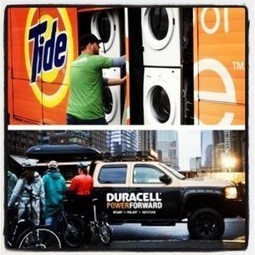



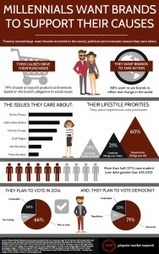









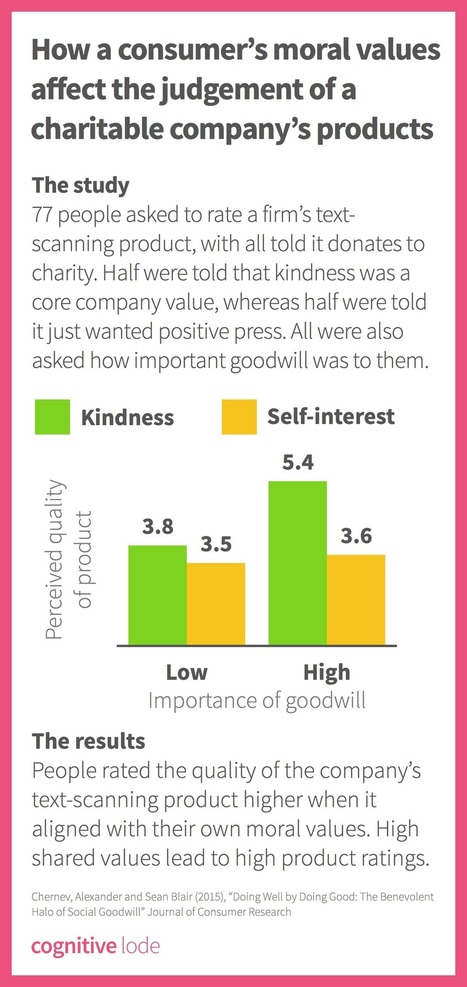

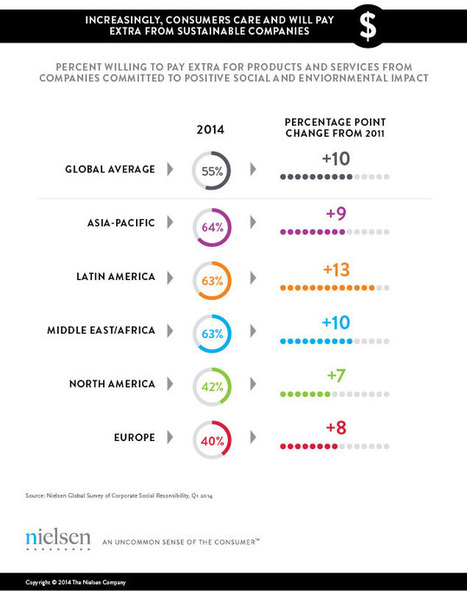



![What's A Company Like You Doing In A [Social] Place Like This? | Forbes | Public Relations & Social Marketing Insight | Scoop.it](https://img.scoop.it/5Lk_mf_eBFL0boVKaWdZITl72eJkfbmt4t8yenImKBVvK0kTmF0xjctABnaLJIm9)
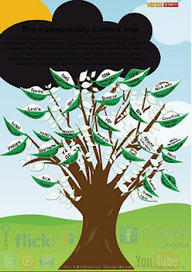








This is a thoughtful post about what it takes to be a purposeful brand. Barclays Bank and Volkswagen need not apply lhough there is a long list of others that don't measure up!